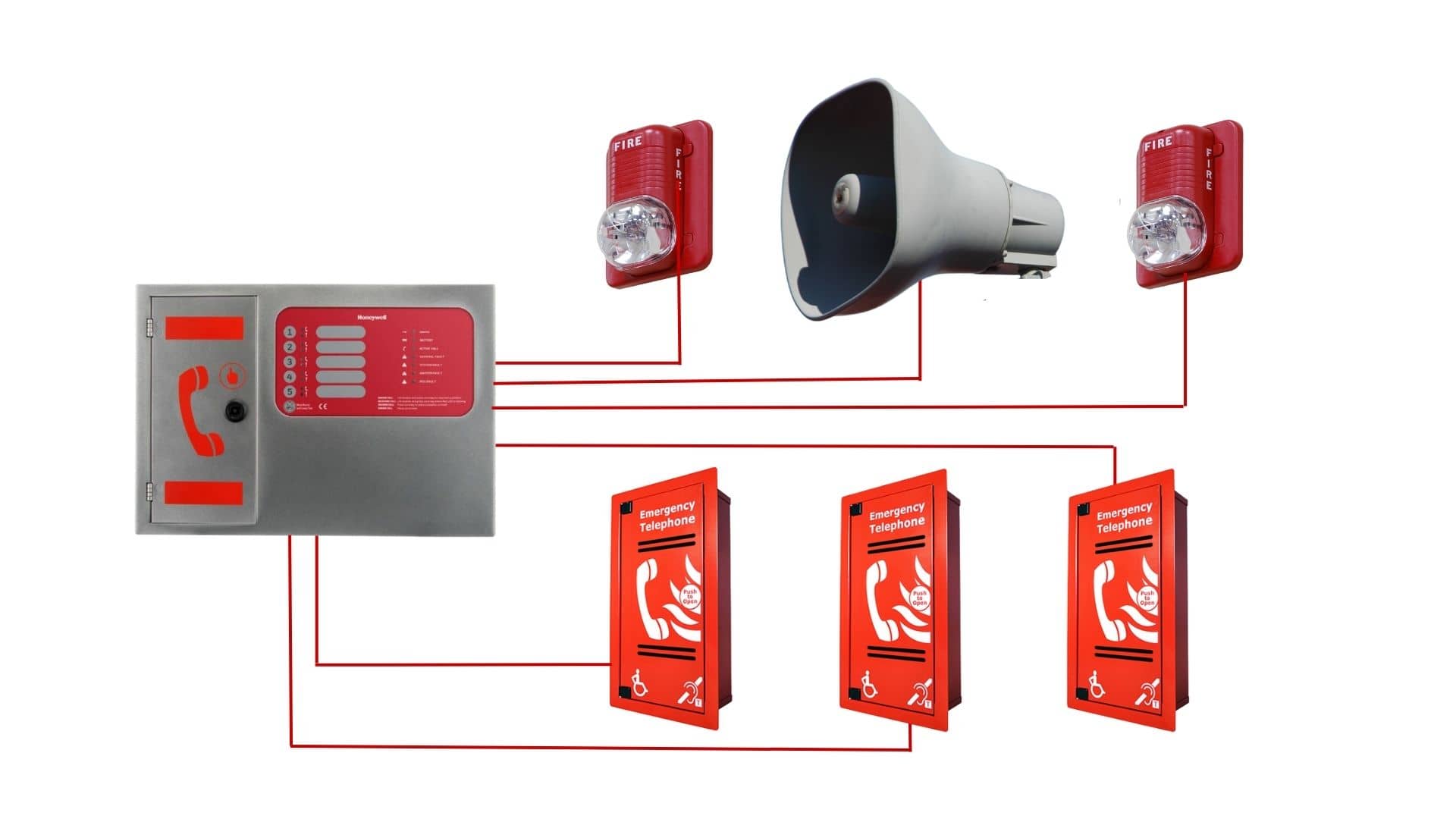Emergency Voice Communication Systems
Emergency Voice Communication Systems are specialized communication systems designed specifically for use in emergency situations. EVC systems are designed to automatically activate in the event of an emergency, providing clear and reliable communication to building occupants and first responders.

Main Components of an EVC System
The goal of EVC Systems is to ensure that everyone in a building or facility is able to communicate quickly and effectively in the event of an emergency, helping to ensure a safe and orderly evacuation or other appropriate response.
SS 546:2022 Singapore Standard
SS 546:2022 is the Singapore Standard for the Code of Practice for Emergency Voice Communication Systems in Buildings. It provides guidelines and recommendations for the design, installation, testing, operation, and maintenance of emergency voice communication (EVC) systems within buildings. The standard is aimed at ensuring these systems are effective in helping people safely evacuate buildings in case of emergencies, such as fires.
Scope: The standard covers various types of EVC systems, such as public address (PA) systems and two-way emergency communication systems, which are used by building occupants and fire safety personnel.
System Design: Systems should be designed to operate under emergency conditions. Includes redundancy and failsafe features. Designed to cover key areas, including evacuation routes, stairwells, and high-occupancy areas.
Installation: Guidelines for the correct installation of EVC equipment, such as microphones, speakers, and control panels. Ensures that systems are installed with proper safety measures to withstand harsh conditions during emergencies.
Testing and Commissioning: Regular testing of the systems to ensure functionality. Commissioning requirements to confirm that the system is installed and operating as designed.
Maintenance: Regular inspections and maintenance schedules. Procedures to address faults or malfunctions in the system.
Compliance: Ensures that the systems comply with local fire safety regulations. Adheres to guidelines laid out by Singapore’s Fire Code and Building Control Regulations.
Team Vivo Asia is skilled and experienced in the design and installation of EVC systems for industries that operate in harsh and hazardous environments. Our engineering services for the design and commissioning of one-way and two-way emergency voice communication systems are tailored to ensure you meet the stringent requirements of SS546 while maintaining operational efficiency and safety. Contact us today to discuss your requirements!
